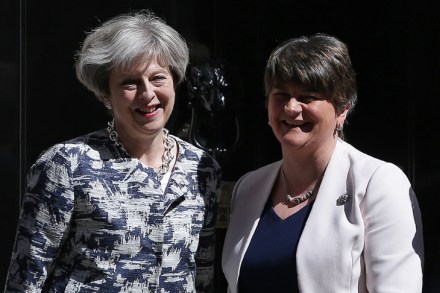The DUP deal is a vulnerability for the Tories
The DUP deal is a vulnerability for the Tories. Whatever justifications ministers come up with for the extra money for Northern Ireland, there’s no getting around the fact that it wouldn’t be going there if Theresa May didn’t need the DUP’s support to be PM. But in the House today, Labour failed to land any blows on the arrangement. Damian Green’s debating points were effective and neither Emily Thornberry nor the SNP were nimble enough to trip him up. Nigel Dodds, the DUP’s Westminster leader, joked that in the interests of transparency he might publish the DUP’s correspondence with Labour and the SNP at the start of the 2010 hung




















